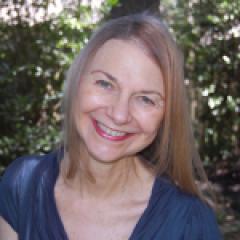Nancy Bailey's Education Website: What Does ChatGPT Say About the Science of Reading? It May Surprise You
ChatGPT is raising concerns about the future of learning and advancing a new way to obtain information. Since many journalists, cognitive psychologists, educators, and parents claim that the Science of Reading (SoR) is the authentic way all children will learn to read, and there’s a drive for states to adopt expensive SoR programs, I asked ChatGPT what it thought about SoR as settled science.
One can argue that ChatGPT isn’t always precise, but it scans a massive amount of information so well that many are concerned that it will replace various professions. It has been dubbed scary good, especially concerning the future of jobs, but it’s also revolutionary.
For those new to ChatGPT it is described as follows:
…a language model developed by OpenAI, designed to respond to text-based queries and generate natural language responses. It is part of the broader field of artificial intelligence known as natural language processing (NLP), which seeks to teach computers to understand and interpret human language.
Here’s the question posed to ChatGPT and the answer it gives.
Is the “science of reading” settled science that determines how reading should be taught?
The “science of reading” refers to a body of research that has investigated how the brain learns to read, and what instructional approaches are most effective in helping children become proficient readers. While there is broad agreement among researchers that phonemic awareness, phonics, fluency, vocabulary, and comprehension are important components of effective reading instruction, there is ongoing debate and research on the best ways to teach each of these components.
Therefore, while there is a growing body of evidence-based research on how reading should be taught, the “science of reading” is not settled science in the sense that there is a single, universally accepted approach to teaching reading. Educational policies and instructional strategies can vary across states, districts, and schools, and there may be different interpretations of the research and how it should be applied in practice.
Moreover, the needs of individual students can also differ, and effective reading instruction should be tailored to meet the needs of individual learners. Therefore, while the “science of reading” provides valuable insights and guidance for educators, it should be used in conjunction with professional judgment and a deep understanding of the unique needs and strengths of individual students.
Focus primarily on the last paragraph and professional judgment. When it comes to teaching reading, it’s still the teacher and their evaluation to consider the individual needs of students. There is no one way to teach lessons, and every child deserves an individualized evaluation of how they’re learning and what’s needed without harshness and sometimes the unreasonable expectations that are written for all children on standardized tests.
ChatGPT could be better, is concerning, and might make mistakes. Still, the above seems well-described, especially upon observing the discussions and debates surrounding how to instruct students with decoding, fluency, vocabulary, and comprehension. Nothing seems written in stone.
Reading should never be considered one way of instruction. And the Science of Reading enthusiasts leave much out in their persuasion of how reading should be taught to everyone.
It is the teachers, those who teach children in the classroom, who should be given the resources and support that they need to work with children, all children, including those who have reading difficulties. It is their professional judgment and understanding of how individual children learn to read and what they need to be successful.
This blog post has been shared by permission from the author.
Readers wishing to comment on the content are encouraged to do so via the link to the original post.
Find the original post here:
The views expressed by the blogger are not necessarily those of NEPC.
